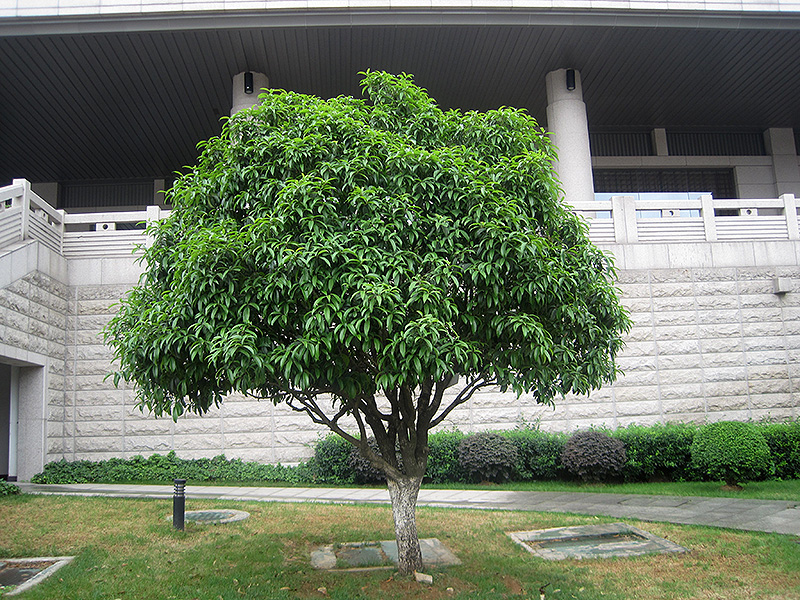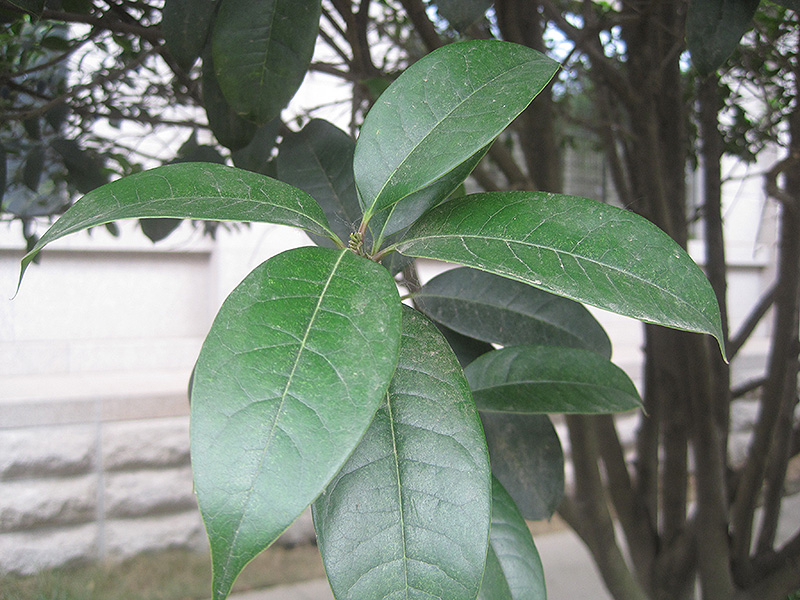$-$BeginNetPS$-$
$-$EndNetPS$-$
Fragrant Tea Olive
Osmanthus fragrans 'var. thunbergii'
Height: 30 feet
Spread: 15 feet
Sunlight:
![]()
![]()
Hardiness Zone: 7b
Other Names: Fragrant Olive, Sweet Osmanthus
Description:
This variety is a broadleaf evergreen small tree or shrub with an upright oval habit; branches are covered with very fragrant, yellow-gold trumpet flowers in summer; can be easily shaped and makes a stunning landscape accent or screen
Ornamental Features
Fragrant Tea Olive is covered in stunning fragrant yellow tubular flowers along the branches in mid summer. It has attractive dark green foliage with light green undersides. The glossy oval leaves are highly ornamental and remain dark green throughout the winter. The smooth dark gray bark is extremely showy and adds significant winter interest.
Landscape Attributes
Fragrant Tea Olive is a dense multi-stemmed evergreen tree with a shapely oval form. Its average texture blends into the landscape, but can be balanced by one or two finer or coarser trees or shrubs for an effective composition.
This is a relatively low maintenance tree, and is best pruned in late winter once the threat of extreme cold has passed. Deer don't particularly care for this plant and will usually leave it alone in favor of tastier treats. It has no significant negative characteristics.
Fragrant Tea Olive is recommended for the following landscape applications;
- Accent
- Shade
- Hedges/Screening
- General Garden Use
- Topiary
Planting & Growing
Fragrant Tea Olive will grow to be about 30 feet tall at maturity, with a spread of 15 feet. It has a low canopy with a typical clearance of 1 foot from the ground, and is suitable for planting under power lines. It grows at a medium rate, and under ideal conditions can be expected to live for 40 years or more.
This tree does best in full sun to partial shade. It does best in average to evenly moist conditions, but will not tolerate standing water. It is not particular as to soil pH, but grows best in rich soils. It is highly tolerant of urban pollution and will even thrive in inner city environments. This is a selected variety of a species not originally from North America.



